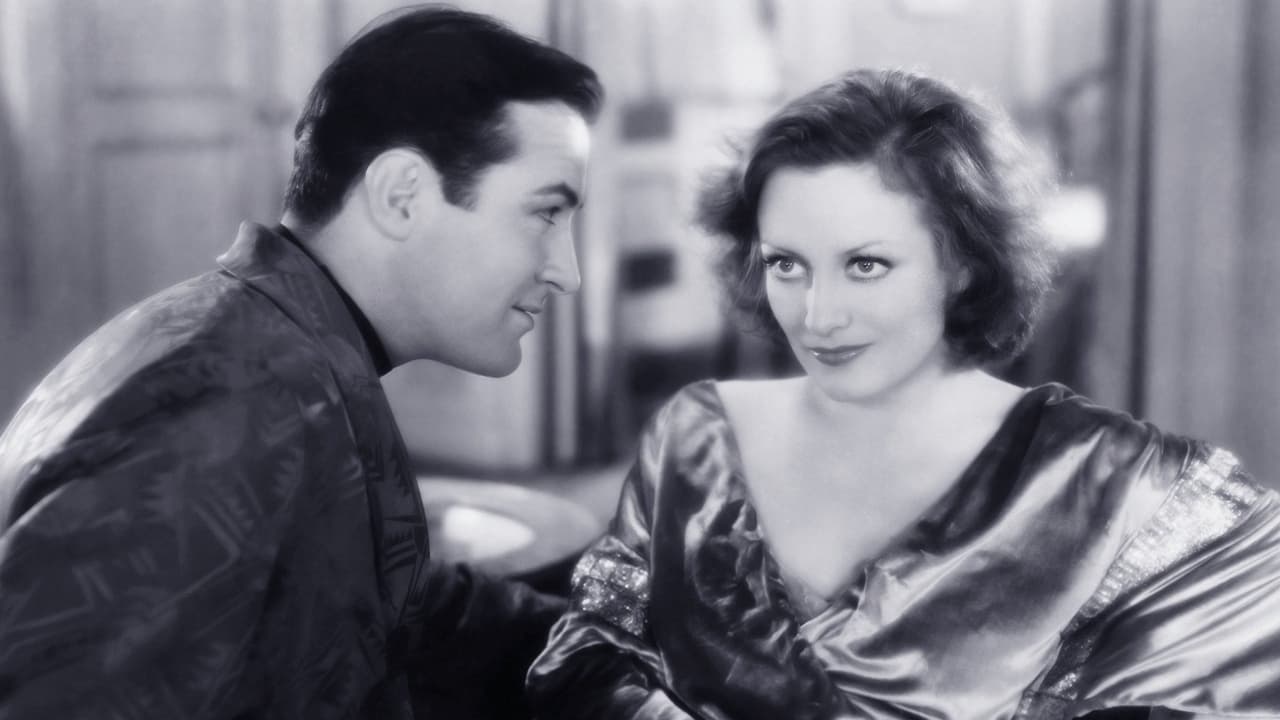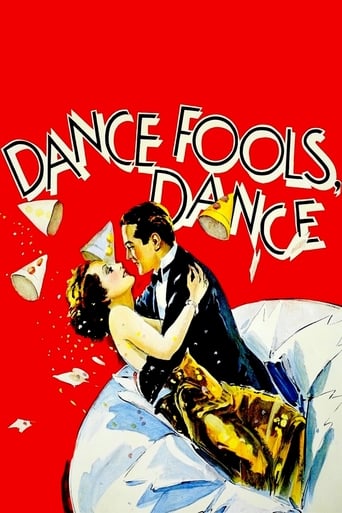Evengyny
Thanks for the memories!
Taraparain
Tells a fascinating and unsettling true story, and does so well, without pretending to have all the answers.
Arianna Moses
Let me be very fair here, this is not the best movie in my opinion. But, this movie is fun, it has purpose and is very enjoyable to watch.
Billy Ollie
Through painfully honest and emotional moments, the movie becomes irresistibly relatable
JohnHowardReid
I don't know if fans of Aurania Rouverol's Andy Hardy will take to this offering from their favorite author with the same degree of enthusiasm. For this time, Andy — brilliantly played by William Bakewell in the stand-out performance of a career stretching from 1925 to 1955 — is a drink-sodden, good-for-nothing-but-evil wastrel, a killer who shoots down a friendly acquaintance in cold blood in order to save his own miserable hide. Sis, superbly interpreted here by Joan Crawford, is likewise a spoiled brat of uncertain virtue, who, realizing the emptiness of her callow society friends, changes her thinking when forced to fend for herself instead of living off her dad. Yes, like Judge Hardy, dad is a bit of a philosopher. His credo is: "Do the other guy before he does you!" Dad is most realistically brought to life here by William Holden. His death scene is utterly convincing. (In real life, Holden himself died on March 3, 1932). But I'm neglecting two of the finest players in the movie, namely Cliff Edwards and Clark Gable. Edwards is ingratiatingly deft as the star reporter who worms information out of Bakewell; whilst Clark Gable is a powerhouse of corrupt fascination in this first of his eight movies with Joan Crawford. The nominal hero of this picture, Broadway actor-director Lester Vail, rates as the weakest "star" of the lot. Even minor character players like the exotic Natalie Moorhead (as Gable's moll), sly Russell Hopton (a cagey thug) and blonde belle, Joan Marsh (a jealous socialite), easily out-shine the staid and stagey Mr. Vail. Fortunately, despite his second billing, his appearances in the action are astonishingly brief.Under-rated Harry Beaumont has astutely directed with wonderful pace and an admirably polished style; whilst the shimmering photography, realistic art direction and flattering costumes are well up to the classy standards we expect of M-G-M. It's a surprise to find that this seems to be Aurania Rouverol's only screenplay. ("A Family Affair", the introductory "Andy Hardy", was based on a stage play). She's darn good. Her dialogue and characters are really alive.In short, powerful, if grim entertainment. I was going to add, "with a happy ending", but the idea of Joan being saddled with a stodgily repentant Mr. Vail is maybe not all that felicitous. This movie is now available on an excellent Warner Archive DVD.
utgard14
Bonnie and Rodney Jordan (Joan Crawford, William Bakewell) lose everything in the stock market crash. First their father dies of a heart attack and then they discover why: he lost his entire fortune in the crash. Now broke for the first time, Bonnie and Rodney must go to work. Bonnie gets a job as a reporter. Rodney goes to work for bootlegger Jake Luva (Clark Gable). The two being on opposite sides of the law leads to inevitable conflict.Middle-of-the-road crime drama will appeal most to fans of Crawford and Gable. It's hardly the best work of either, though. It's a pre-Code film, which sometimes is all you have to say to get some classic film fans interested in a movie. Personally I didn't see anything all that risqué in this one. An early scene of a bunch of people in their underwear going for a swim seems to get the most talk but it's pretty tame despite the description. The story is something that was done many times and better over the years, in one variation or another. The insipid romance between Joan and Lester Vail leaves a lot to be desired.
tavm
Joan Crawford is Bonnie Jordan, an ex-society girl working as a reporter investigating the murder of a fellow worker named Bert Scranton played by future Jiminy Cricket, Cliff Edwards. She goes undercover as a dance hall girl at gangster Jake Luva's joint. Luva is played by Clark Gable, at the time just a working actor but possibly due to his brief kiss with Ms. Crawford, about to become a superstar. In fact, the king of the box office for much of the 30s. The way the camera is stationed as well as the lack of music score reveals the picture's early talkie roots but the expressions of the actors are enough to carry it to still-interesting heights. In summary, Dance, Fools, Dance is still well worth a look for the historical first teaming of Crawford and Gable.
mark.waltz
Joan Crawford and William Bakewell are the spoiled, yet uneducated children of wealthy William Holden (Not the popular matinée idol of the 40's and '50's) who must find other means of supporting themselves when he looses all of his money. Crawford becomes a cub reporter on a big city newspaper while drunkard Bakewell gets involved in bootlegger Clark Gable's racket, seemingly to set him up with wealthy new clients. When Crawford's reporter pal (Cliff Edwards) is spotted investigating a St. Valentine's Day Massacre type assassination on members of a rival gang, Gable forces Bakewell to kill him. Crawford goes undercover to unmask those responsible, wins Gable's confidence, and is horrified by what she discovers.This quick-moving and entertaining melodrama was MGM's answer to "Little Caesar", "The Public Enemy" and "Scarface", with a woman's angle added to make things a little different. As she did in many of her earlier films (both silent and sound), Crawford dances up a storm, proving herself as one of the best "Jazz Babies" of the late 20's and early 30's. Star-to-be Clark Gable is billed way down in the credits, playing a brutish role that made him extremely unlikable, although his sexiness does show in his scenes with Crawford and the feisty Natalie Moorehead as his moll. In all of his future movies with the future "Mommy Dearest", Gable softened his image and was more the lover rather than the brute man, even though he was still all man. Bakewell, who was a major player in the early 30's (usually cast as insensitive and selfish young men who cause their families a lot of heartache), was never really likable on screen, and in bit parts of the late 30's and 40's, this trait continued as well.Well-written and excellently photographed, this is one of the films that assured Crawford stardom, making her a major threat to Norma Shearer. (Garbo would be in a category all her own.) There's a lot of pre-code innuendo, some great montages, and a memorable exchange between Natalie Moorehead and Gable involving a lit match.


